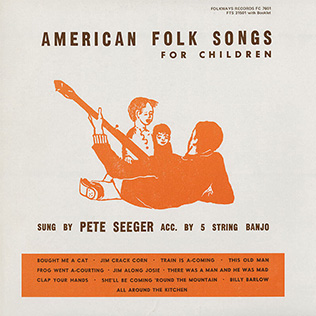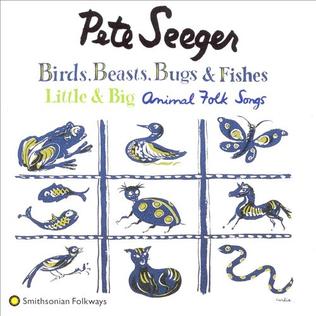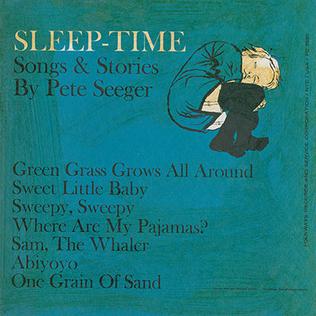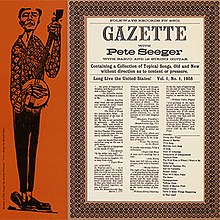
Guy Hughes Carawan Jr. was an American folk musician and musicologist. He served as music director and song leader for the Highlander Research and Education Center in New Market, Tennessee.

The New Lost City Ramblers, or NLCR, was an American contemporary old-time string band that formed in New York City in 1958 during the folk revival. Mike Seeger, John Cohen and Tom Paley were its founding members. Tracy Schwarz replaced Paley, who left the group in 1962. Seeger died of cancer in 2009, Paley died in 2017, and Cohen died in 2019. NLCR participated in the old-time music revival, and directly influenced many later musicians.

Mike Seeger was an American folk musician and folklorist. He was a distinctive singer and an accomplished musician who played autoharp, banjo, fiddle, dulcimer, guitar, mouth harp, mandolin, dobro, jaw harp, and pan pipes. Seeger, a half-brother of Pete Seeger, produced more than 30 documentary recordings, and performed in more than 40 other recordings. He desired to make known the caretakers of culture that inspired and taught him.

Elizabeth "Libba" Cotten was an American blues and folk musician, singer, and songwriter.
Smithsonian Folkways is the nonprofit record label of the Smithsonian Institution. It is a part of the Smithsonian's Smithsonian Center for Folklife and Cultural Heritage, located at Capital Gallery in downtown Washington, D.C. The label was founded in 1987 after the family of Moses Asch, founder of Folkways Records, donated the entire Folkways Records label to the Smithsonian. The donation was made on the condition that the Institution continue Asch's policy that each of the more than 2,000 albums of Folkways Records remain in print forever, regardless of sales. Since then, the label has expanded on Asch's vision of documenting the sounds of the world, adding six other record labels to the collection, as well as releasing over 300 new recordings. Some well-known artists have contributed to the Smithsonian Folkways collection, including Pete Seeger, Ella Jenkins, Woody Guthrie, and Lead Belly. Famous songs include "This Land Is Your Land", "Goodnight, Irene", and "Midnight Special". Due to the unique nature of its recordings, which include an extensive collection of traditional American music, children's music, and international music, Smithsonian Folkways has become an important collection to the musical community, especially to ethnomusicologists, who utilize the recordings of "people's music" from all over the world.

Happy Traum is an American folk musician who started playing music in the 1950s and became a stalwart of the Greenwich Village music scene of the 1960s and the Woodstock music scene of the 1970s and 1980s. For several years, he studied blues guitar with Brownie McGhee, who was a big influence on his guitar style. Happy is most famously known as one half of Happy and Artie Traum, a duo he began with his brother. They released several albums, including Happy and Artie Traum, Double Back, and Hard Times In The Country. He has continued as a solo artist and as founder of Homespun Music Instruction.

"Where Have All the Flowers Gone?" is a modern folk-style song. Inspired lyrically by the traditional Cossack folk song "Koloda-Duda", Pete Seeger wrote the melody and the first three verses in 1955 and published it in Sing Out! magazine. Additional verses were added in May 1960 by Joe Hickerson, who turned it into a circular song. Its rhetorical "where?" and meditation on death place the song in the ubi sunt tradition. In 2010, the New Statesman listed it as one of the "Top 20 Political Songs".
"Worried Man Blues" is a folk song in the roots music repertoire. It is catalogued as Roud Folk Song Index No. 4753. Like many folk songs passed by oral tradition, the lyrics vary from version to version, but generally all contain the chorus "It takes a worried man to sing a worried song/It takes a worried man to sing a worried song/I'm worried now, but I won't be worried long." The verses tell the story of a man imprisoned for unknown reasons "I went across the river, and I lay down to sleep/When I woke up, had shackles on my feet", who pines for his lost love, who is "on the train and gone." The melody in 4/4 timing has a strong resemblance to "The Battle Hymn of the Republic", which is in 6/8 timing.
"The Bells of Rhymney" is a song first recorded by folk singer Pete Seeger, which consists of Seeger's own music accompanying words written by Welsh poet Idris Davies.
Folkways Records was a record label founded by Moses Asch that documented folk, world, and children's music. It was acquired by the Smithsonian Institution in 1987 and is now part of Smithsonian Folkways.
Moses Asch, often known as Moe Asch, was an American recording engineer and record executive. He founded Asch Records, which then changed its name to Folkways Records when the label transitioned from 78 RPM recordings to LP records. Asch ran the Folkways label from 1948 until his death in 1986. Folkways was very influential in bringing folk music into the American cultural mainstream. Some of America's greatest folk songs were originally recorded for Asch, including "This Land Is Your Land" by Woody Guthrie and "Goodnight Irene" by Lead Belly. Asch sold many commercial recordings to Verve Records; after his death, Asch's archive of ethnic recordings was acquired by the Smithsonian Institution, and released as Smithsonian Folkways Records.

The discography of Pete Seeger, an American folk singer, consists of 52 studio albums, 23 compilation albums, 22 live albums, and 31 singles. Seeger's musical career started in 1940 when he joined The Almanac Singers. He stayed with the group for two years until he was drafted into the Army to fight in the Second World War. After the end of World War II in 1945, Seeger helped found an organization known as People's Songs, along with the influential folk music magazine People's Songs Bulletin. He published several singles and a studio album with the magazine. Seeger would play at People's Songs events, called hootenannies, until the organization folded in 1949. After People's Songs, Seeger and another former member of the Almanacs, Lee Hays, founded the Weavers, who achieved commercial success. In 1952, The Weavers went on hiatus due to the Red Scare; Seeger and Hays both had Communist ties. After the demise of the Weavers, Seeger released a solo album, American Folk Songs for Children, in 1953 on Folkways Records. He continued to release albums on Folkways until he was signed to Capitol in 1961.

American Folk Songs for Children is a studio album released by Pete Seeger in 1953 by Folkways Records. It was Seeger's first solo album.

Robert Watson "Bob" Schmertz was a Pittsburgh-based architect and folk musician whose music has been covered by Pete Seeger, Burl Ives, Tennessee Ernie Ford, Bill and Gloria Gaither, The Statler Brothers, The Cathedrals, Dailey & Vincent, the River City Brass Band, and Ernie Haase & Signature Sound. Born in Squirrel Hill, Pittsburgh, Pennsylvania, Schmertz attended the Carnegie Institute of Technology, where he wrote the Carnegie Tartans' fight song, "Fight for the Glory of Carnegie," and played the banjo in a jazz orchestra; after he graduated with an architecture degree in 1921, Schmertz designed buildings. He taught at Carnegie for more than thirty-five years before his retirement.

Trouble in Mind is an album by American blues musician Big Bill Broonzy. It was released on February 22, 2000 by Smithsonian Folkways. The album consists of traditional folk, blues, and spiritual songs featuring Broonzy accompanying himself on acoustic guitar and a guest appearance by Pete Seeger. Suffering from cancer, Broonzy realized his time was limited and hence recorded extensively between 1956 and 1957. While most of the work draws from the album Big Bill Broonzy Sings Country Blues (1957), arranged by Moses Asch and Charles Edward Smith, Trouble in Mind is also sourced from concert broadcasts and interviews recorded late in Broonzy's career.
Jeff Place is the Grammy-award-winning Archivist and Curator at the Smithsonian Center for Folklife and Cultural Heritage. He and Anthony Seeger were the first two full-time employees hired in 1987 when the Smithsonian acquired Folkways Records from the estate of Folkways founder Moses Asch.

Birds, Beasts, Bugs & Fishes is a 1998 compilation album by Pete Seeger and was released on Smithsonian Folkways as SFW45039.

Sleep-Time: Songs & Stories is a studio album by American folk singer Pete Seeger. It was released in 1958 by Folkways Records. It was later re-released in 1967 under the name Abiyoyo and Other Story Songs for Children by Smithsonian Folkways.

American Industrial Ballads is a studio album by American folk singer Pete Seeger. It was released in 1956 by Folkways Records. It was reissued in 1992 by Smithsonian Folkways.

American Favorite Ballads, Vol. 2 is the third studio album by American folk singer Pete Seeger. It was released in 1958 by Folkways Records, and later reissued in 2003 by Smithsonian Folkways.














